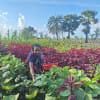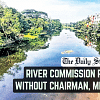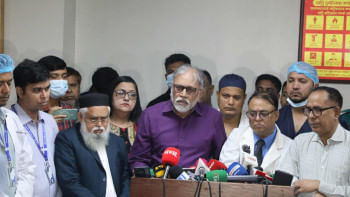What local NGOs must do to secure climate finance

The Green Climate Fund (GCF), though the youngest financial mechanism under the United Nations Framework Convention on Climate Change (UNFCCC), is one of the largest multilateral climate funds. However, only 19 percent of direct entities receive this funding, since only accredited entities are eligible to apply for it due to very high transparency and fiduciary standards set by the GCF governing board. This is the case for all large climate funds. Thus starts a dilemma, as the entities best at acquiring these funds are often not the ones best at implementing the project activities at the grassroots level.
Local organisations are always the first to respond in case of an emergency due to both their proximity and understanding of the local population. Development projects are cyclic, and so are the involvement of international actors, but local organisations constantly serve the communities. This is why they are trusted and taken seriously by people. This, along with their localised knowledge and colloquial communication methods, enables them to help the inhabitants of climate-vulnerable regions in the most effective manner.
However, only a small portion of the funds designated for climate actions comes their way, which is not enough for them to deliver up to their potential. Funding from global sources and bilateral agencies are disseminated in a trickle-down approach. After covering overhead costs at various levels, a bare minimum amount is left for achieving the desired goals at the ground level. Due to the funding situation, these organisations also face a huge challenge of recruiting and retaining human resources as they can't compete with the salaries and benefits offered by international NGOs.
Why can't or don't the donors fund these local organisations directly? One of the main reasons they give is that local organisations often don't have the capacity to comply with their requirements and spend money effectively. Multilateral and bilateral organisations also prefer to channel the funds through a few trusted partners, since this method involves fewer risks and is better compliant with their own rules. It's also difficult for such organisations to channel funds directly to local NGOs because of their strict anti-money laundering rules, and the local organisations often don't have the capacity to ensure the level of transparency and accountability that such donors require.

Local organisations also often lack the technical skills that can appropriately express the value for money for their work. Therefore, their proposals for funding often fall short in competitive biddings. However, they, too, can work on building their institutional capacity and compete for global funding. In order to stand out, these local organisations need to address three aspects of institutional capacity-building.
First comes profile-building, for which proper documentation of all the projects an organisation is involved with must be preserved. The documentation should be done from a knowledge management perspective, including internal and external evaluations to track the impact of the projects. It helps greatly to track their progress and archive all the achievements so that they can be presented to the donors at any given point. Publishing good newspaper articles and in peer-reviewed journals is another excellent way of getting into the spotlight. Professionalism is the key – following the working style of international NGOs could help with building trust with donor organisations. Furthermore, these organisations can also give the impression of being more professional and trustworthy when they have and follow proper environmental and social safeguards. So preparing these frameworks and adhering to them are highly recommended. Preparing a five-year strategy and action plan could also be very valuable for local organisations. Additionally, concept notes can be prepared on various topics related to climate change adaptation, such as water security and sanitation, agriculture, aquaculture, nature-based solutions, migration and urban livelihood, and skills development.
Building a global and national network is the second essential aspect of institutional capacity-building. The more people know about an organisation and its achievement, the more inclined they will be to fund its projects. Getting to know the government stakeholders and identifying champions within it is key towards building national presence. Additionally, it is important to build a network with bilateral and multilateral agencies. Proactively engaging with and offering to present projects and ideas to different stakeholders help in increasing visibility of an organisation's work. Attending relevant national and international conferences is a good starting point when it comes to building networks and increasing visibility.
Lastly, when it comes to accessing funds, it is extremely important to stay updated on who the potential donors are, and which funds are available for Bangladesh. Keeping lists of other relevant stakeholders is just as important. Staying updated with political changes in large donor countries is mandatory too. Note that funding flow towards different sectors by bilateral donors often vary according to the agendas of the political parties in power. In fact, climate-related funding is politically sensitive. Local organisations can also boost their chances of accessing funds by becoming part of a consortium.
Development discourse dictates where the funding is targeted; with the current global focus on climate change, there will be funds available for addressing over time. In recent times, even the donors have started to recognise the effectiveness of local organisations and are focusing on "localisation" in the humanitarian sector. Major bilateral donors have made it a requirement for international NGOs and other agencies to partner up with local NGOs and provide them with 25 percent of the project funding. Furthermore, international organisations are also working on capacity-building of their local partners. This concept could potentially be adopted in combating climate change in Bangladesh.
Therefore, these grassroots organisations need to keep working on building their institutional capacity by focusing on the three aspects to get access to climate funding.
Md Bodrud-Doza is operations and business development manager at the International Centre for Climate Change and Development (ICCCAD). Email: [email protected]
Mahzabeen Mahfuz is research officer at ICCCAD. Email: [email protected]

 For all latest news, follow The Daily Star's Google News channel.
For all latest news, follow The Daily Star's Google News channel. 










Comments